Delegation from Georgetown University’s Institute for Women, Peace, and Security Visits Sophia University to Meet Women Scholars

On April 15, a delegation of 13 people, including Ambassador Melanne Verveer, Director of the Georgetown Institute for Women, Peace, and Security (GIWPS), visited Sophia University. They met with Chancellor Sali Augustine, President Miki Sugimura, Vice President for Global Academic Affairs Mariko Iijima, Professor Tamao Saito (Department of Materials and Life Sciences, Faculty of Science and Technology), and Professor Makiko Deguchi (Department of English, Faculty of Foreign Studies), and had a fruitful discussion on various topics including gender roles and diversity. After the discussion, a campus tour was given by Sophia female students.
GIWPS is an institute within Georgetown University’s Walsh School of Foreign Service that hosts global conferences and with the goal of promoting a more peaceful and equitable world by focusing on the vital role women play in conflict prevention, peacebuilding, economic growth, and addressing global threats such as climate change and violent extremism, as well as fostering strategic partnerships. Dr. Melanne Verveer was the U.S. Ambassador for Global Women’s Issues, appointed by the Obama Administration, and has a long history of advancing the rights and status of women.
Sophia University is closely associated with Georgetown University, both founded by the Society of Jesus, and it was to Georgetown University that Sophia sent its first exchange student to study abroad in 1935. Later, in 1975, a Student Exchange agreement was signed between the two institutions, and since then there has been active exchange of students and scholars, including the exchange program and the Special Admission Program for the Georgetown Graduate School. During the GIWPS delegation’s visit, the delegation exchanged views with President Sugimura, who recently became the 17th and first female president of the university, and other female researchers and leaders at the university on promoting women’s activities at institutions of higher education and research.
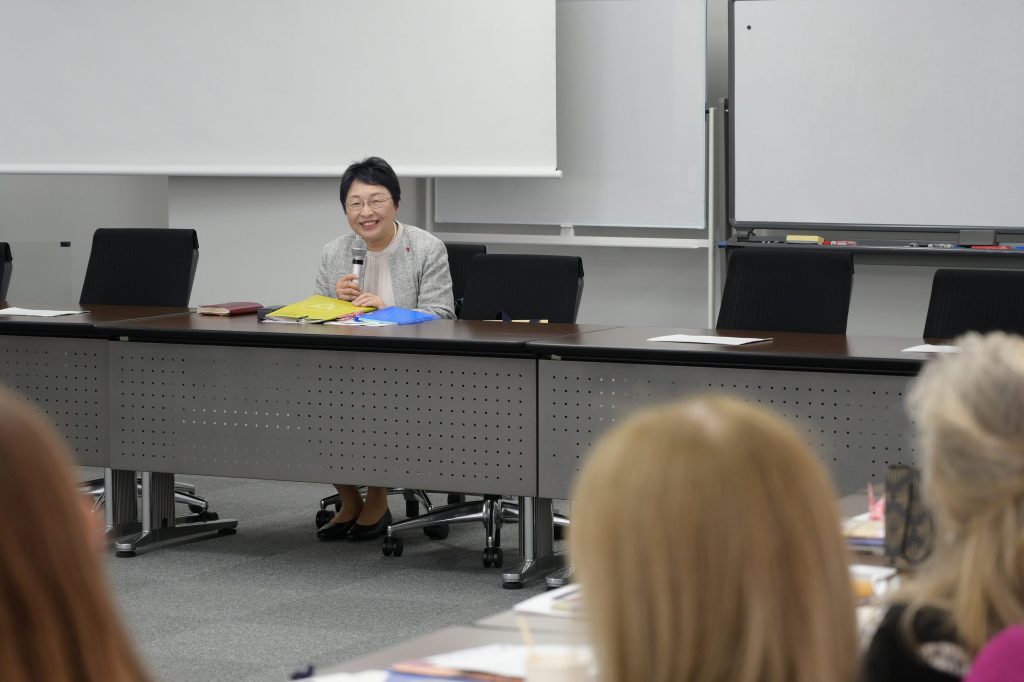
Prior to the discussion, Chancellor Augustine welcomed the delegation, followed by an introductory presentation on Sophia by the Center for Global Education and Discovery. President Sugimura followed by speaking about her career as a researcher and the importance of promoting the advancement among female students, researchers, faculty, and staff.
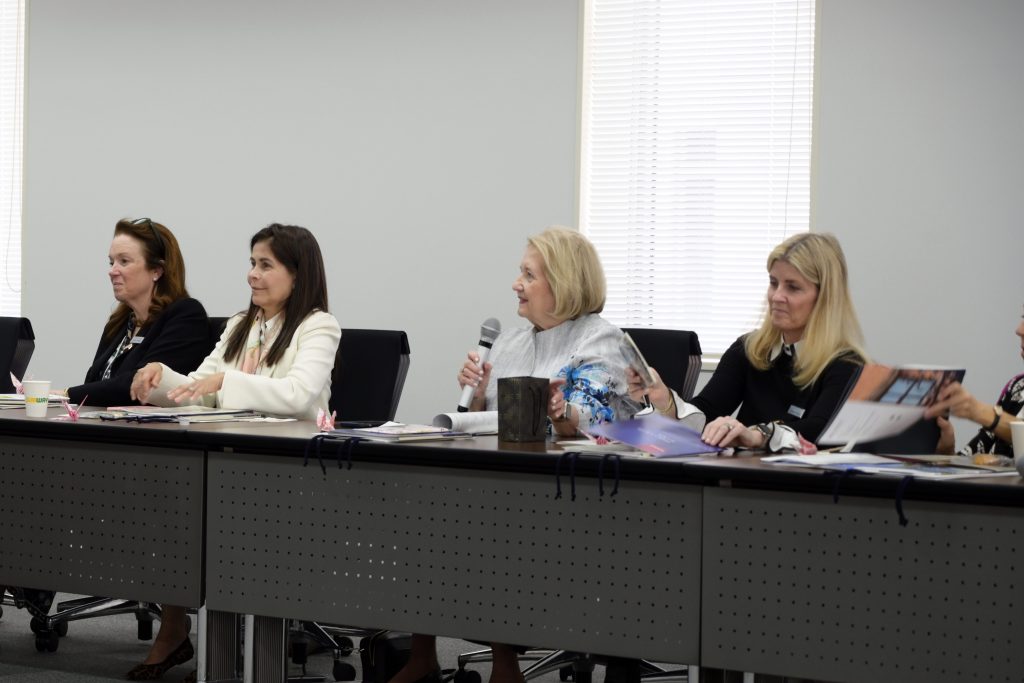
Ambassador Verveer congratulated President Sugimura on her appointment and expressed her high expectations for the first female president of Sophia. The two universities not only share the educational spirit of “for others and with others” as Jesuit educational institutions but also have a strong perspective on international peace and service.
A question-and-answer session between the delegation and President Sugimura followed, with questions focusing on equal educational opportunities for men and women in Japan, fields of study to which women are more likely to apply, career paths after graduation, and career support. President Sugimura spoke about the current situation in Japan, including case studies of other universities, and pointed out that while there are not many apparent issues in terms of gender gap in college enrollment and employment rates, the underrepresentation of women in science and engineering fields, including medicine, and the lack of women in managerial positions after employment are notable and are deep-rooted social problems that are also related to the patriarchal culture in Japan.
After the Q&A session, Professor Saito gave an overview of the “Diversity Promotion Model in Private Universities,” a project jointly conducted by Doshisha University and Sophia University under the Diversity Research Environment Initiative (Survey and Analysis) by the Japan Science and Technology Agency(JST) and Professor Deguchi presented specific initiatives and findings on “majority privilege” conducted at Sophia University. Vice President Iijima described her own area of research and university-wide effort.
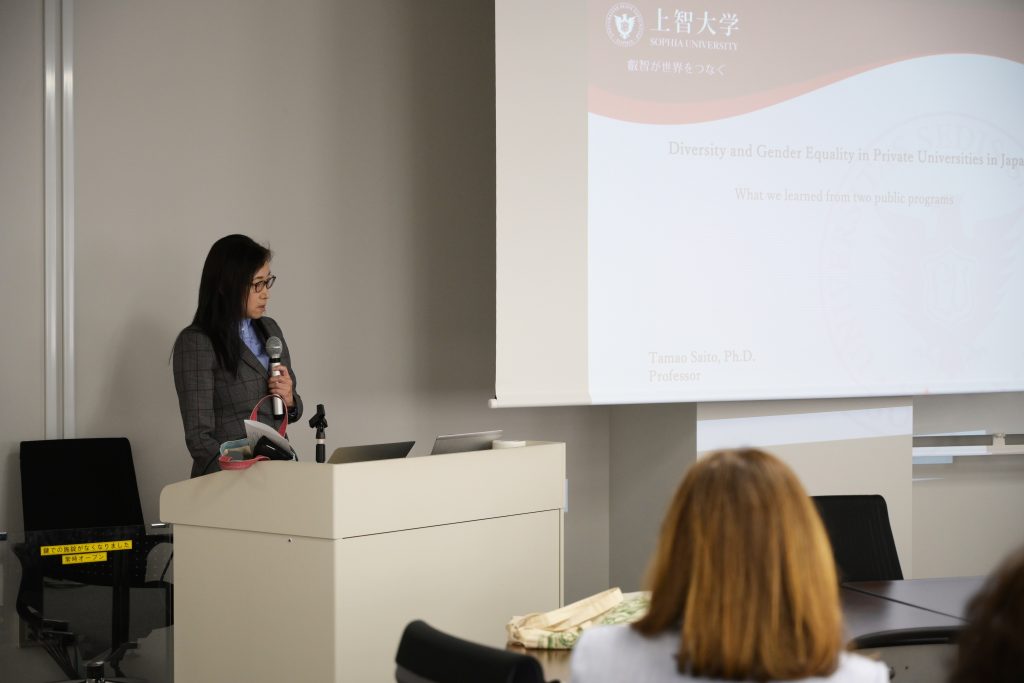
Professor Saito pointed out that, according to the project’s survey, private universities in particular are behind in terms of developing decision-making processes to support female researchers, and that the voices of researchers struggling to balance work and life events are not easily reflected in policy. She concluded that the main reason for this is the low percentage of women in leadership positions at private universities. To address this issue, she noted that Sophia aims to foster servant leadership, that is, leading the organization through service and support.
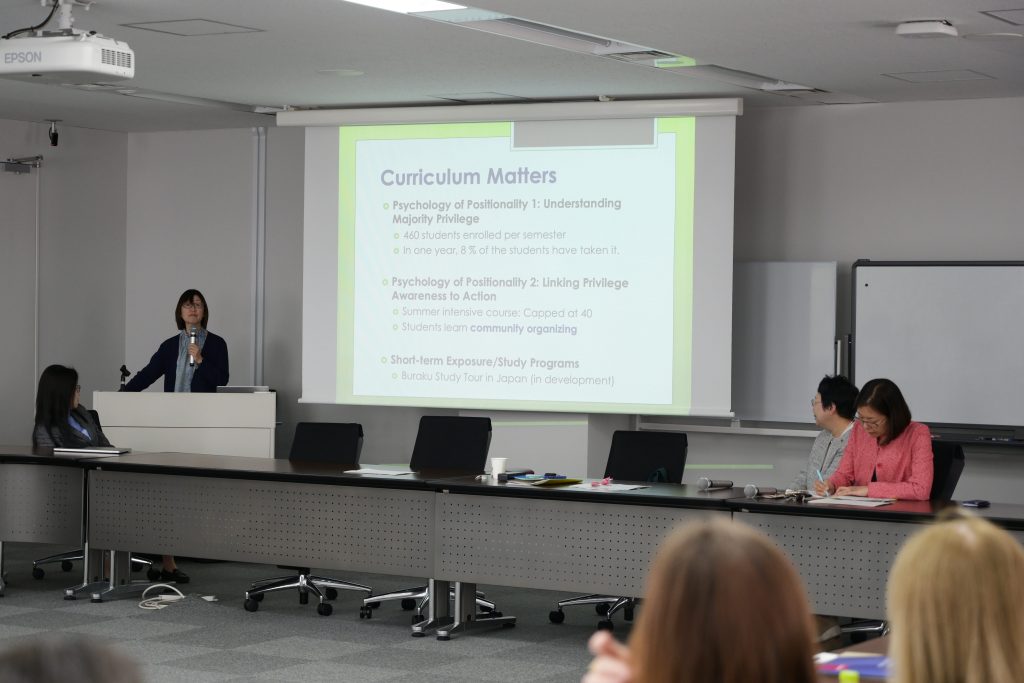
Based on the premise that discrimination is a problem of the majority, Professor Deguchi discussed the issue of how to make the majority, or those on the side of power, view “discrimination” as their own issue, citing the example of the general studies course she teaches, “Psychology of Position.” She explained that by visualizing and teaching the “privilege” of the majority in this course , she has helped to change the awareness of each student and promote diversity on campus as a whole.
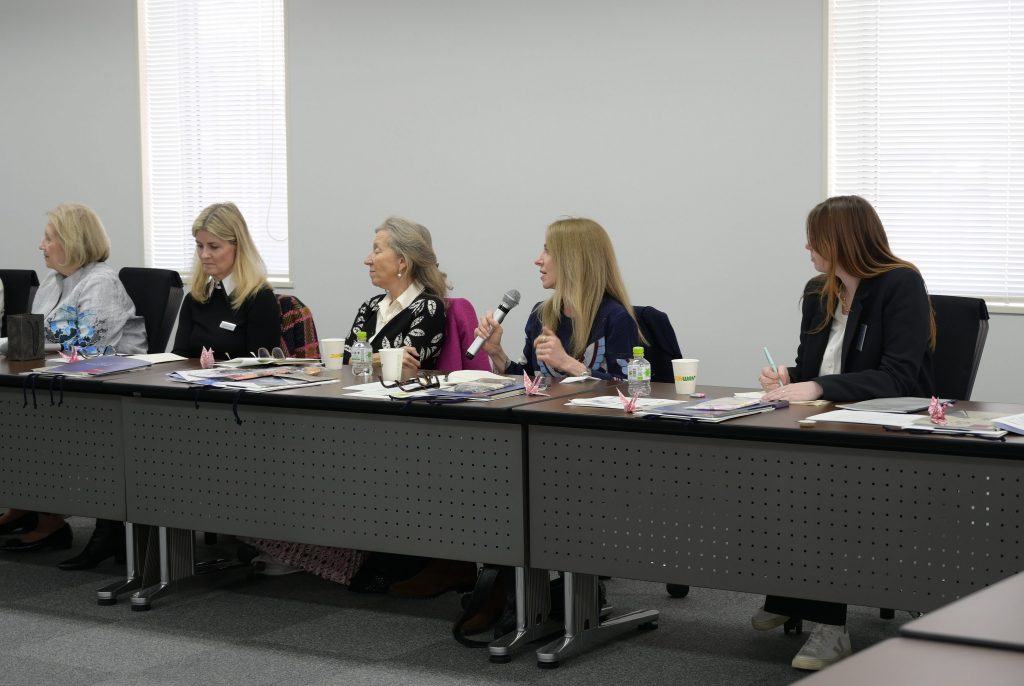
After the presentations by the three speakers, President Sugimura spoke about her works as UNESCO Chair, noting that the University is promoting education and research on human dignity, peace, and sustainability based on the activities of UNESCO, with a special focus on “Peace, Human Rights, and Sustainability,” and suggesting that an important perspective is how to combine this with promoting women’s activities. The discussion was followed by an exchange of views with the delegation, including a question-and-answer session on balancing work and family life for women in Japanese higher education and research institutions. The delegation provided detailed information on the attractiveness of American universities as study abroad destinations from the perspectives of education and research, as well as support systems for international students, including initiatives at Georgetown University.
They concluded with an agreement to continue working together on women rights and empowerment, and peace and security. The meeting ended on a friendly and warm note and closed after a brief tour of the campus guided by two female Sophia students.